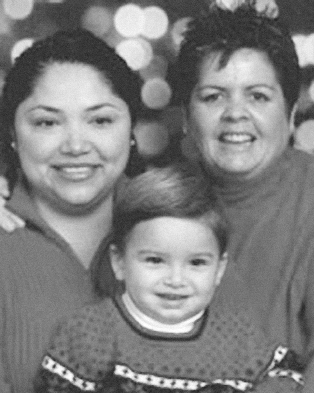Lesbian denied services due to doctors’ religious beliefs loses round
A unanimous California appeals court panel ruled on December 2 that the North Coast Women’s Care Medical Group may not have violated California’s civil rights act, at least as it existed as of 2000, when several of its doctors refused to perform an in vitro fertilization procedure for a lesbian based on their personal religious objections.
The ruling reversed a decision by San Diego County Superior Court Judge Ronald S. Prager, who had granted plaintiff Guadalupe Benitez’s motion to exclude a religious defense against her discrimination claim.
Benitez’s health care benefits from her employer included coverage for fertility treatments. Benitez wanted to become pregnant through donor insemination, and was referred to North Coast Women’s Care Medical Group. Although the doctors there provided some treatment, they balked at performing the final procedure to initiate pregnancy, citing their religious objections. They referred Benitez to another service provider, who performed the procedure. She had a baby boy, Gabriel.
Benitez, however, incurred extra expense and delay as a result of North Coast’s refusal to provide service, and filed a lawsuit alleging discrimination in violation of California’s civil rights act, which forbids discrimination by places of public accommodation. At the time her case arose, in 2000, the statute did not expressly ban sexual orientation discrimination, though California courts had authoritatively interpreted it to do so. Benitez claimed that she was denied in vitro services because she was a lesbian, based on statements that doctors and other employees of North Coast made.
North Coast responded with several affirmative defenses, including the claim that the doctors in question had a constitutionally protected right to free exercise of their religion, and could not be subjected to civil liability for refusing to perform a medical procedure that violated their religious beliefs. Benitez in turn filed a motion for summary adjudication, which means she was asking the judge to decide, as a matter of law, that a religious defense was not valid in her case.
Responding to Benitez’s motion, North Coast raised a new argument, saying the doctors’ religious objections were more wide-ranging than suggested by her complaint. They claimed that they had religious objections to providing in vitro fertilization services for any unmarried woman, regardless of her sexual orientation, and so were not discriminating against her as a lesbian, and had a right to refuse their services on religious grounds. Prager rejected this argument, found that Benitez was only charging them with sexual orientation discrimination, and that a medical practice not operated by a religious institution cannot raise this defense to a sexual orientation claim.
North Coast turned to the court of appeals. Writing for the three-judge panel, Justice Terry B. O’Rourke found that Prager was wrong to grant Benitez’s motion because there was a factual dispute about why the doctors had denied treatment to her. Although California’s civil rights statute has been legislatively amended since 2000 to make clear that discrimination based on marital status is unlawful, at that time courts had not interpreted it to forbid such bias. In fact, several California courts had specifically rejected such grounds in discrimination suits. If, indeed, the doctors would not perform this procedure for any unmarried woman, according to O’Rourke, they would not have been in violation of the law.
Thus, the appeals court found Prager’s summary judgment about the doctors’ religious defense to have been premature, and the determination whether such a defense could be raised unnecessary at this point in the lawsuit.
The question whether individual health care providers may refuse to provide particular services due to their individual religious beliefs is a hotly disputed issue. Courts generally try to avoid deciding issues of great controversy if such a decision is not yet necessary, and the court of appeals’ ruling falls within that standard practice, putting off the time when this issue might have to be decided.
Due to the importance of this issue, however, numerous organizations filed briefs as friend of the court on both sides of the question, the roster including religious associations, health care organizations, gay rights organizations, and reproductive rights organizations. The team of attorneys representing Benitez includes Jennifer Pizer, a senior attorney in Lambda Legal’s Western Regional Office.
gaycitynews.com

































